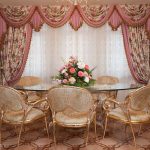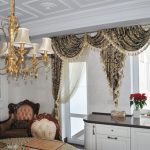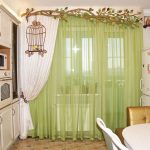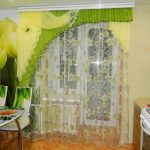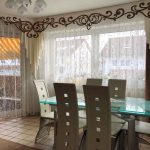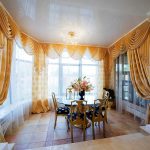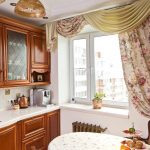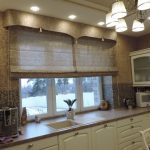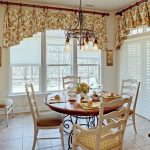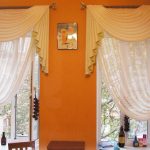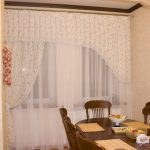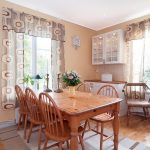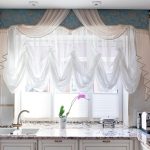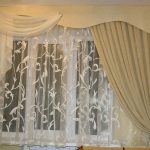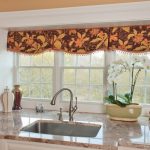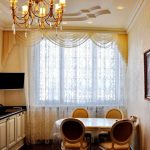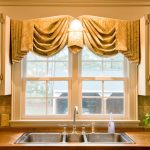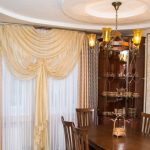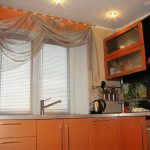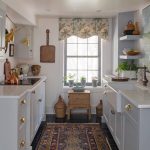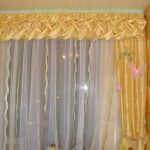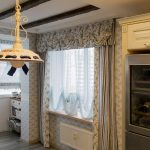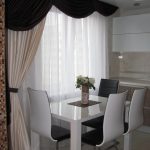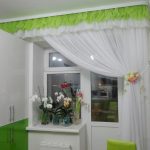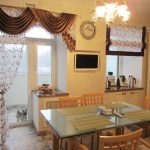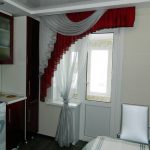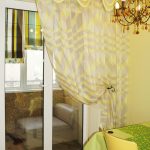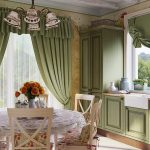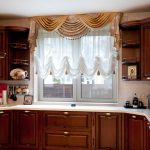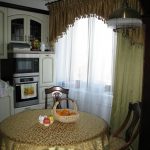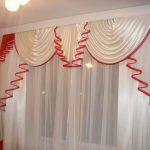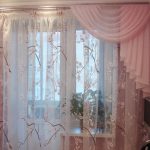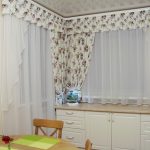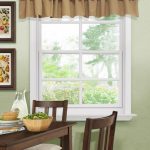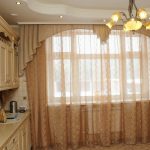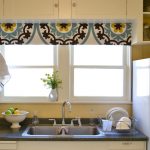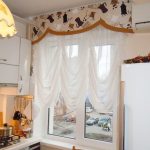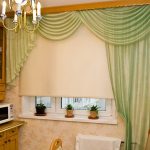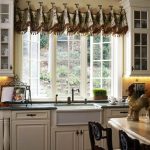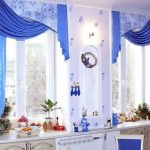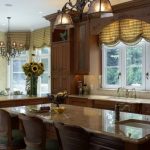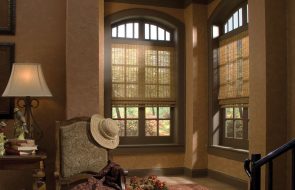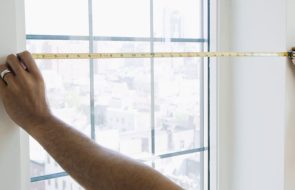The kitchen is a place where there is increased pollution. For this reason, we try to choose materials for this room that are easy to care for, wash quickly, and do not collect dust and dirt. We try to avoid various decorations, because they are often the largest dust collectors, and given that in the kitchen dust mixes with fat and becomes sticky, it is really better to refuse decorations.
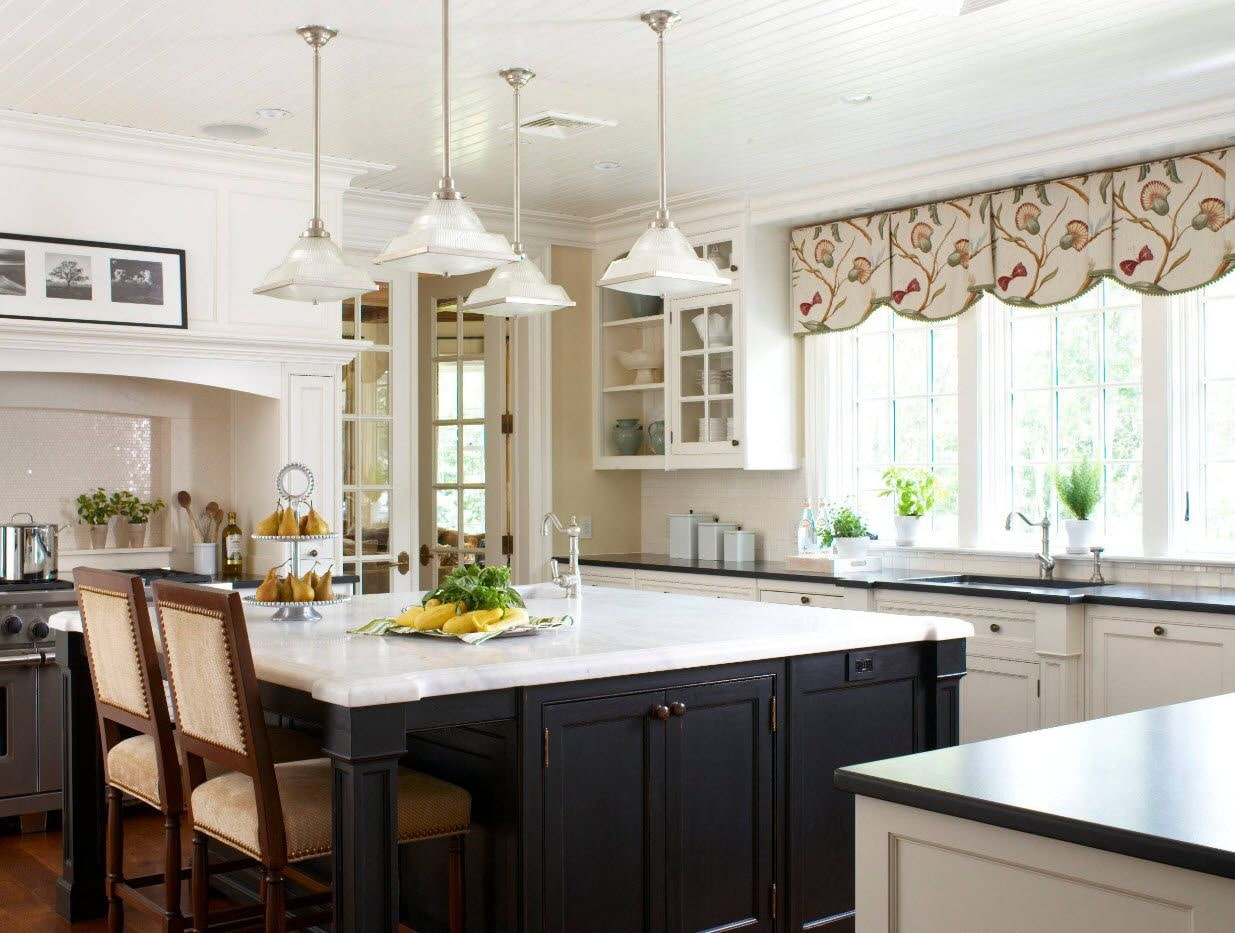
This rule applies to any surfaces: floor, ceiling, table and windows. Decorating windows in the kitchen is a separate topic. More and more housewives are moving away from the usual curtains and drapes in the kitchen, replacing them with roller blinds or blinds. However, in ancient times, the kitchen was one of the most important places in the house, especially since in the modern world the kitchen also includes the functions of a refectory, in modern language - a dining room. And this area was decorated quite luxuriously: stones, large and heavy curtains on the windows, lambrequins and many other decorations.
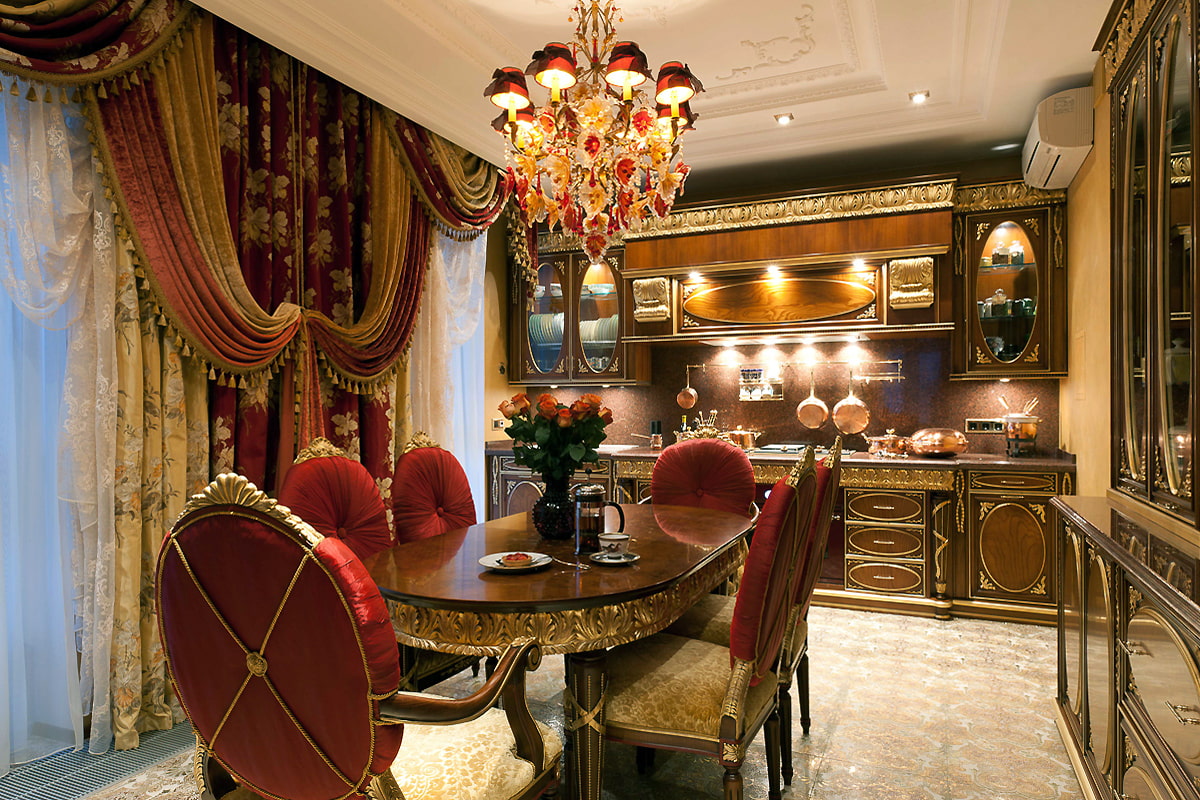
Wanting to bring back the former luxury into fashion, some modern designers suggest decorating the kitchen in the Baroque or ancient classic style. It is worth mentioning that modern classics differ from the standard, or as we called it ancient. Therefore, we made a clarification that lambrequins and other decorations are suitable for a kitchen in the style of standard or ancient classics.
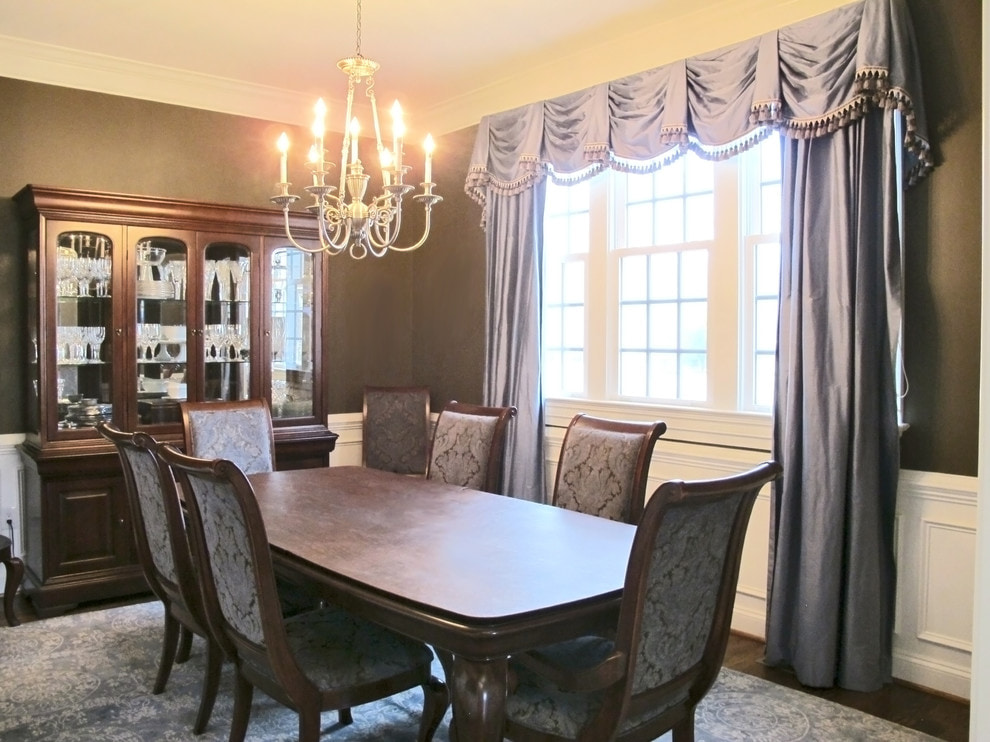
If you have decided to decorate your kitchen in a classic style, but do not want to use the services of a designer, you can try to start with window decoration and make lambrequins for kitchen windows with your own hands.
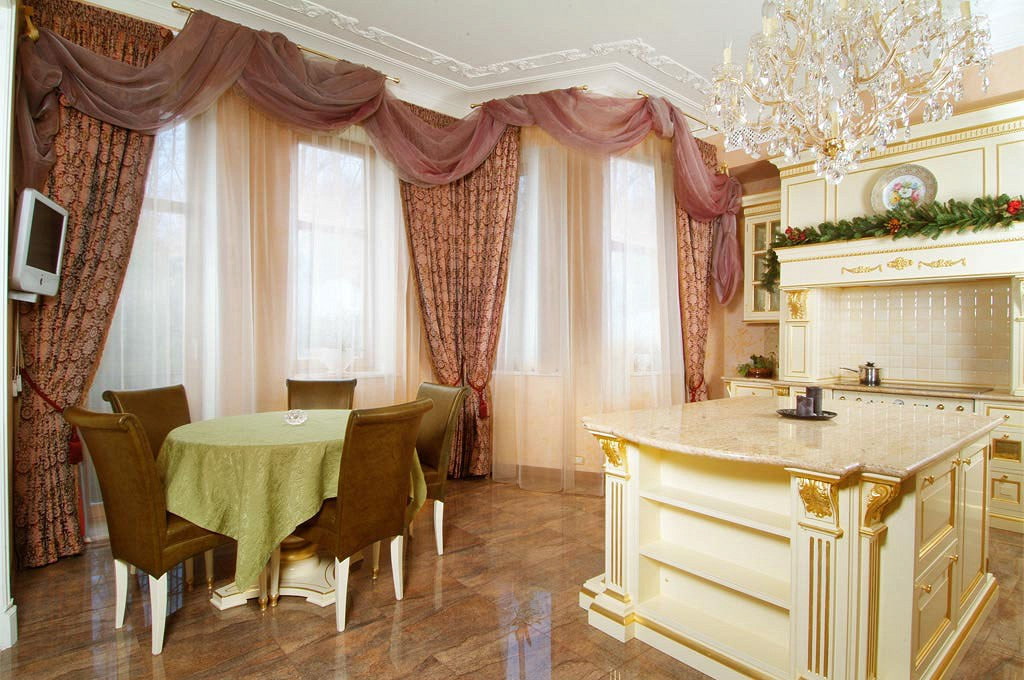
Content
- What is a lambrequin, what is it intended for?
- Lambrequin for the kitchen with your own hands: step-by-step guide
- Sketches, stencils, photos of lambrequins
- What material can it be made from?
- How to make it correctly
- The main problems when sewing lambrequins
- Combination of lambrequins with tulle in the kitchen
- Design options
- VIDEO: Charming lambrequin made by hand.
- 50 options for beautiful lambrequins in the kitchen:
What is a lambrequin, what is it intended for?
Lambrequins came to us from France, in fact, the name is also French. This decorative element is a strip of fabric that decorates windows along the cornice. It can be short, medium length and long; curly or straight.
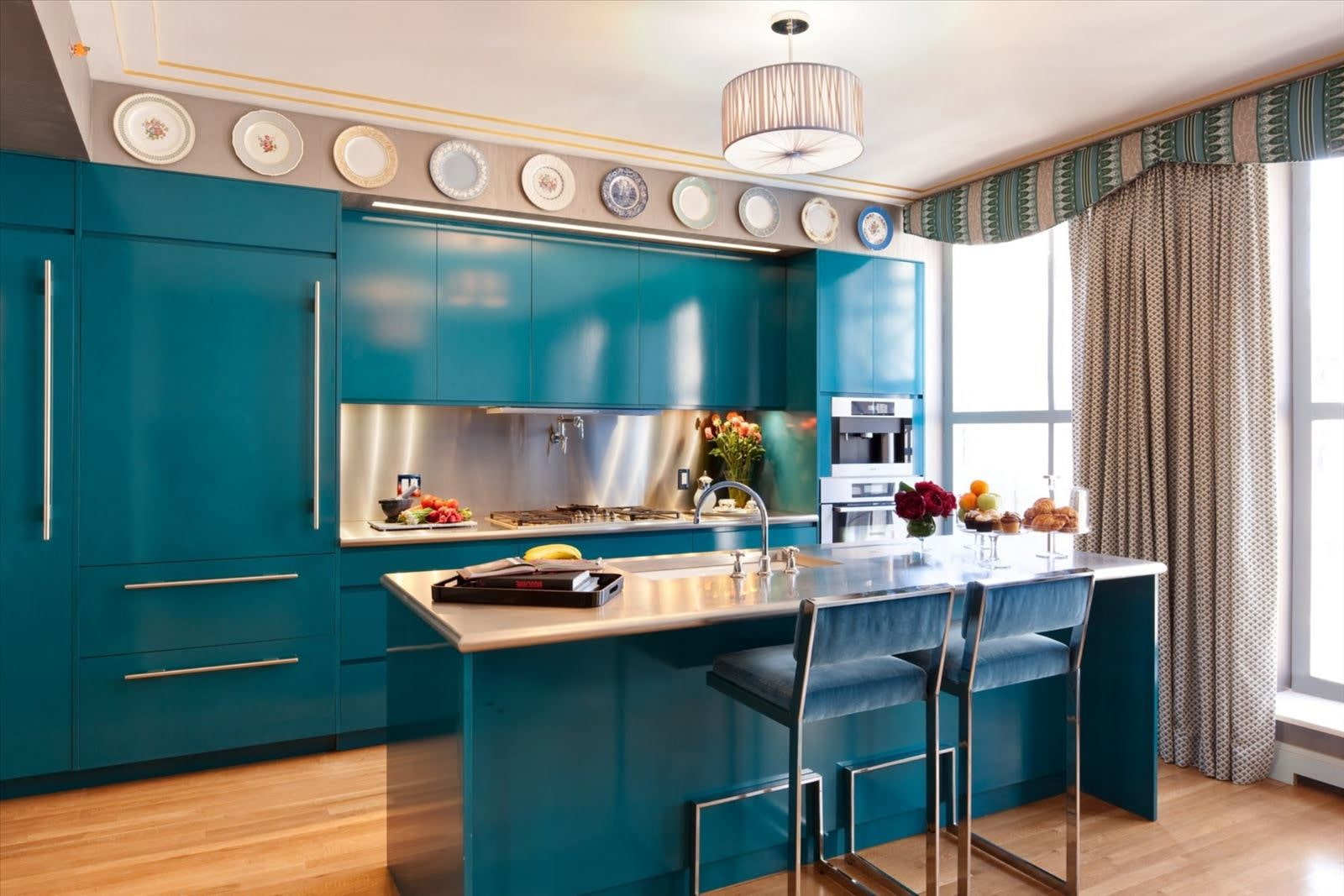
Initially, lambrequins were also short canopies on a bed. Later, windows began to be decorated in this way. This element was used in the luxurious Baroque and Rococo styles. Canopies were made of expensive fabrics of bright colors with the obligatory inclusion of gold thread. They were often decorated with embroidery from such thread.
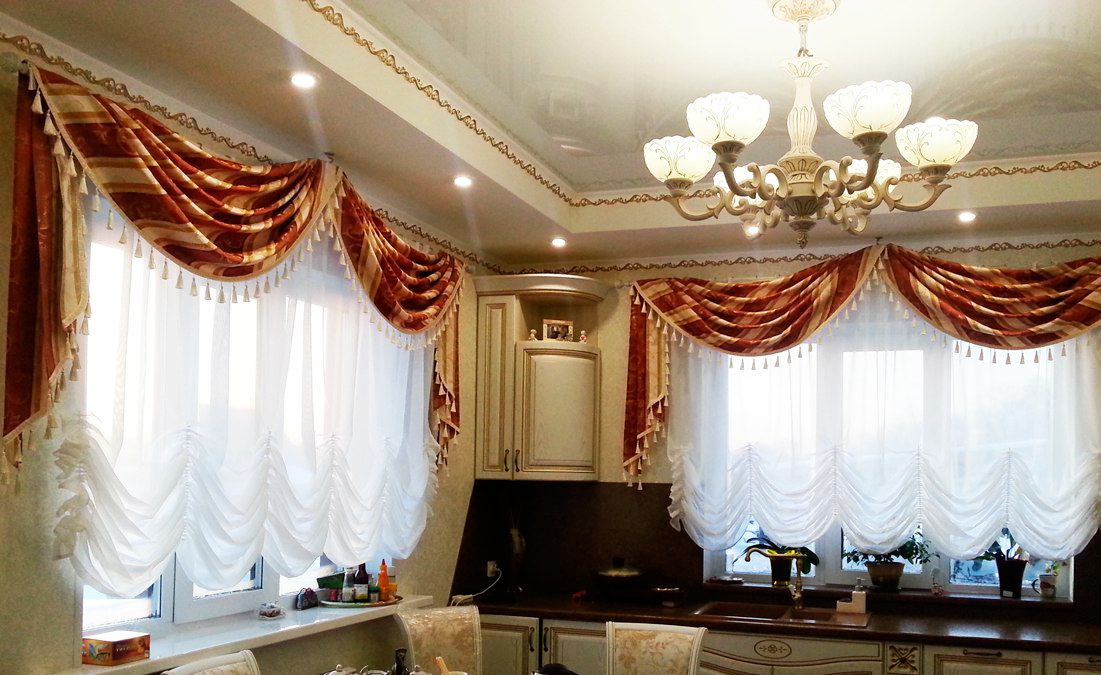
In their modern form, there are many different types of lambrequins. Some have not lost their former luxury, while others have adapted to the modern style and have become less noticeable and pompous. Among the types of modern lambrequins, we highlight the following.
- Soft. They are sewn from various fabrics, by gathering. In this way, they form beautiful folds. Curtain tape can also be used for their production. Soft models can be either with folds or smooth.
- Bando. This is a type of solid lambrequin. They are made using a rigid base onto which fabric is stretched or glued. Bando can be made of wood or cardboard, without the use of fabric.
- Combined. In this case, the first and second types are combined. For example, a bandeau is placed on top of the cornice, and below it, a soft lambrequin with drapery.
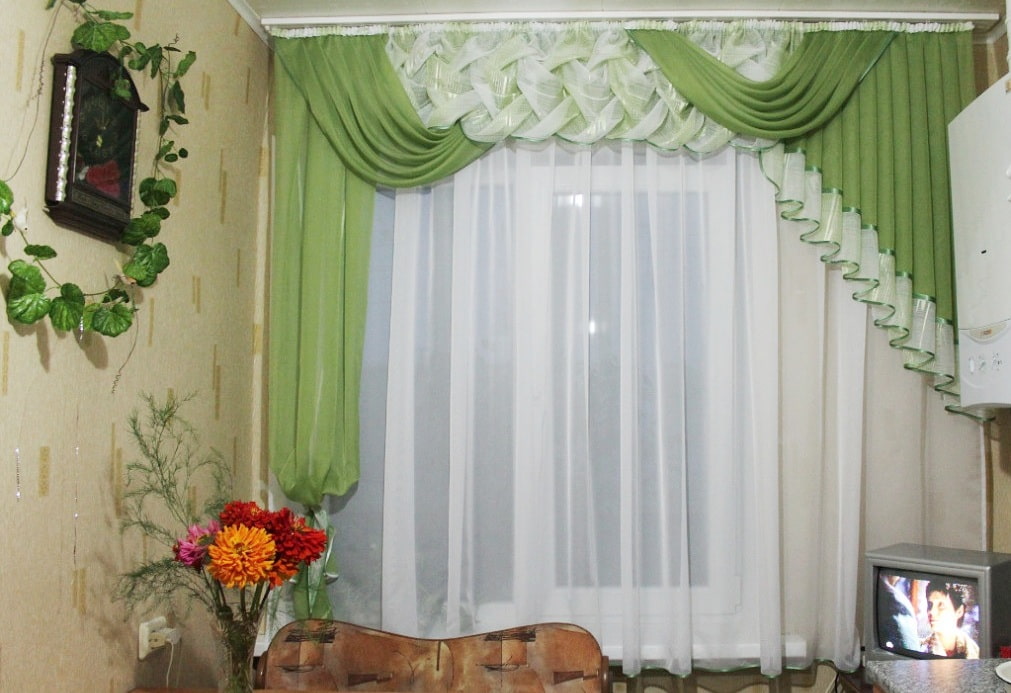
In modern design, this element has not only an aesthetic but also a practical purpose. It allows you to visually smooth out small irregularities of the window and hide the cornice.
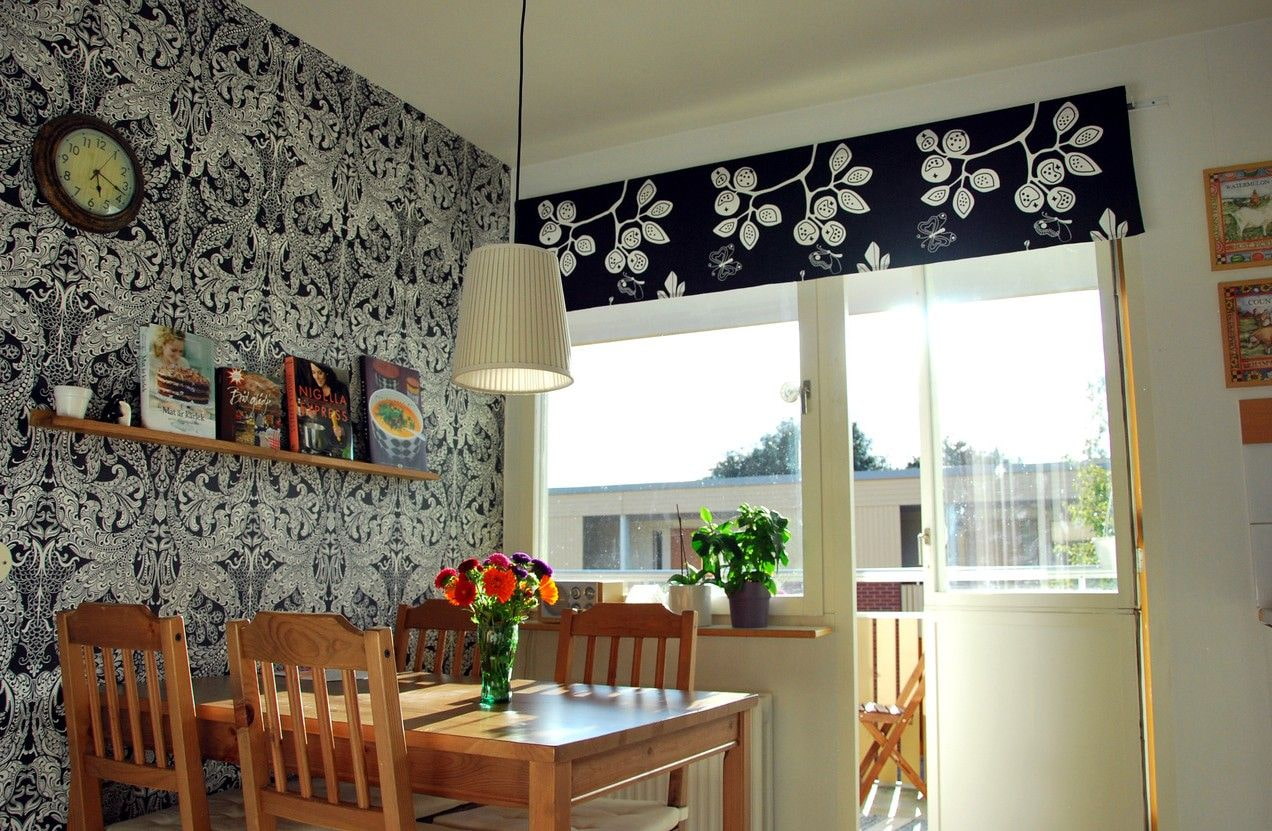
Most often, this element is used in the living room, as this room often has large windows, and such a bulky design can be used on them. However, it is also suitable for the kitchen or bedroom. But in this case, it is necessary to choose a less flashy design and lighter fabric.
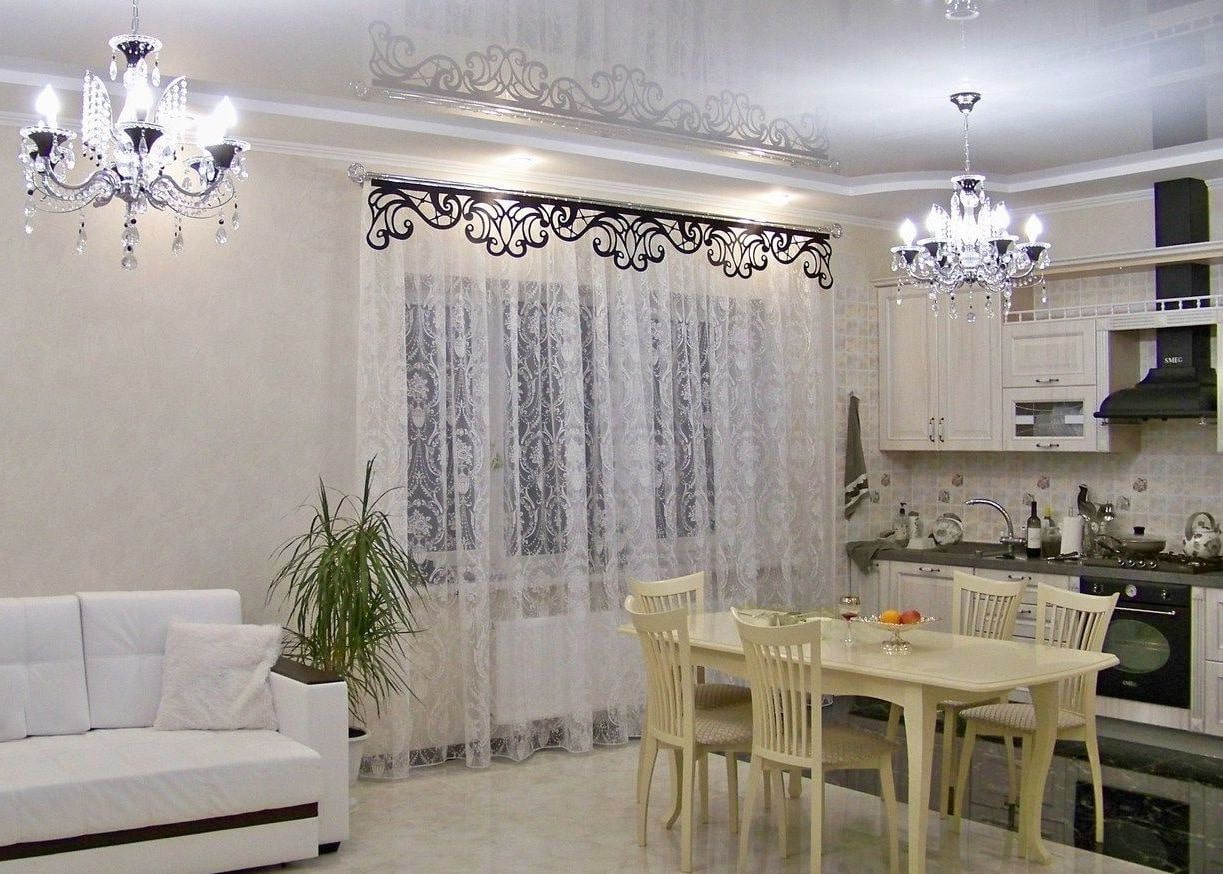
Lambrequin for the kitchen with your own hands: step-by-step guide
Sewing a lambrequin is not as difficult as it may seem at first glance. If you approach the matter responsibly and do not miss all the preparations, the product will turn out well.
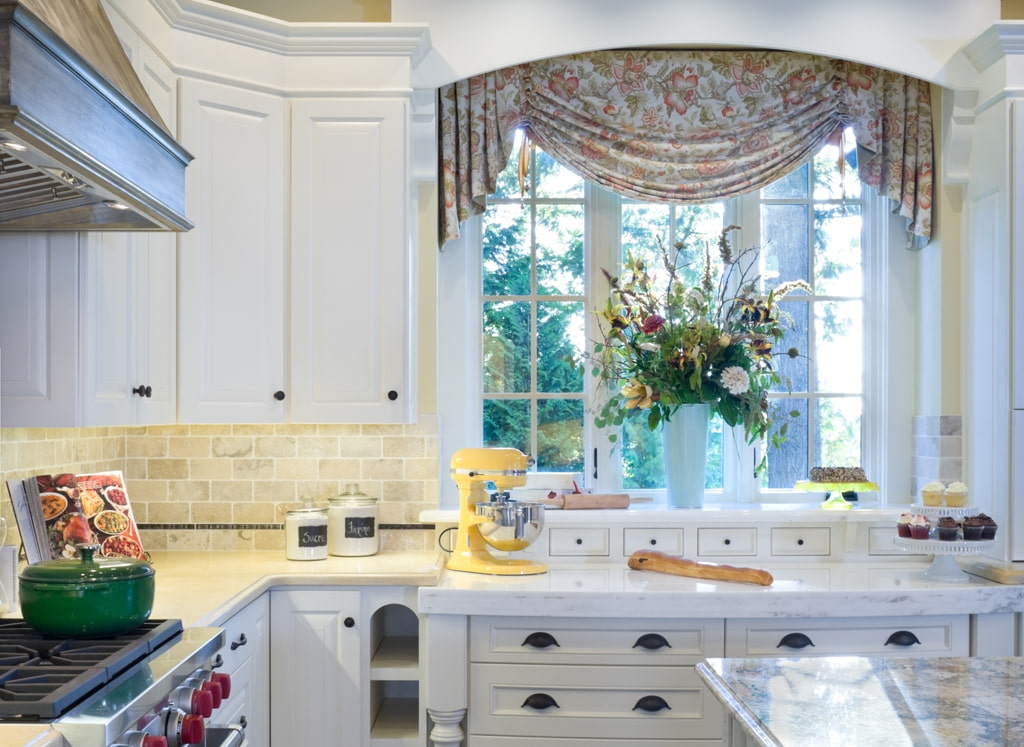
Important! Do not rush to see the result, skipping stages of work. Patience is needed here.
Sketches, stencils, photos of lambrequins
Before sewing a lambrequin for the kitchen, look at the proposed photos and choose an example that you like.
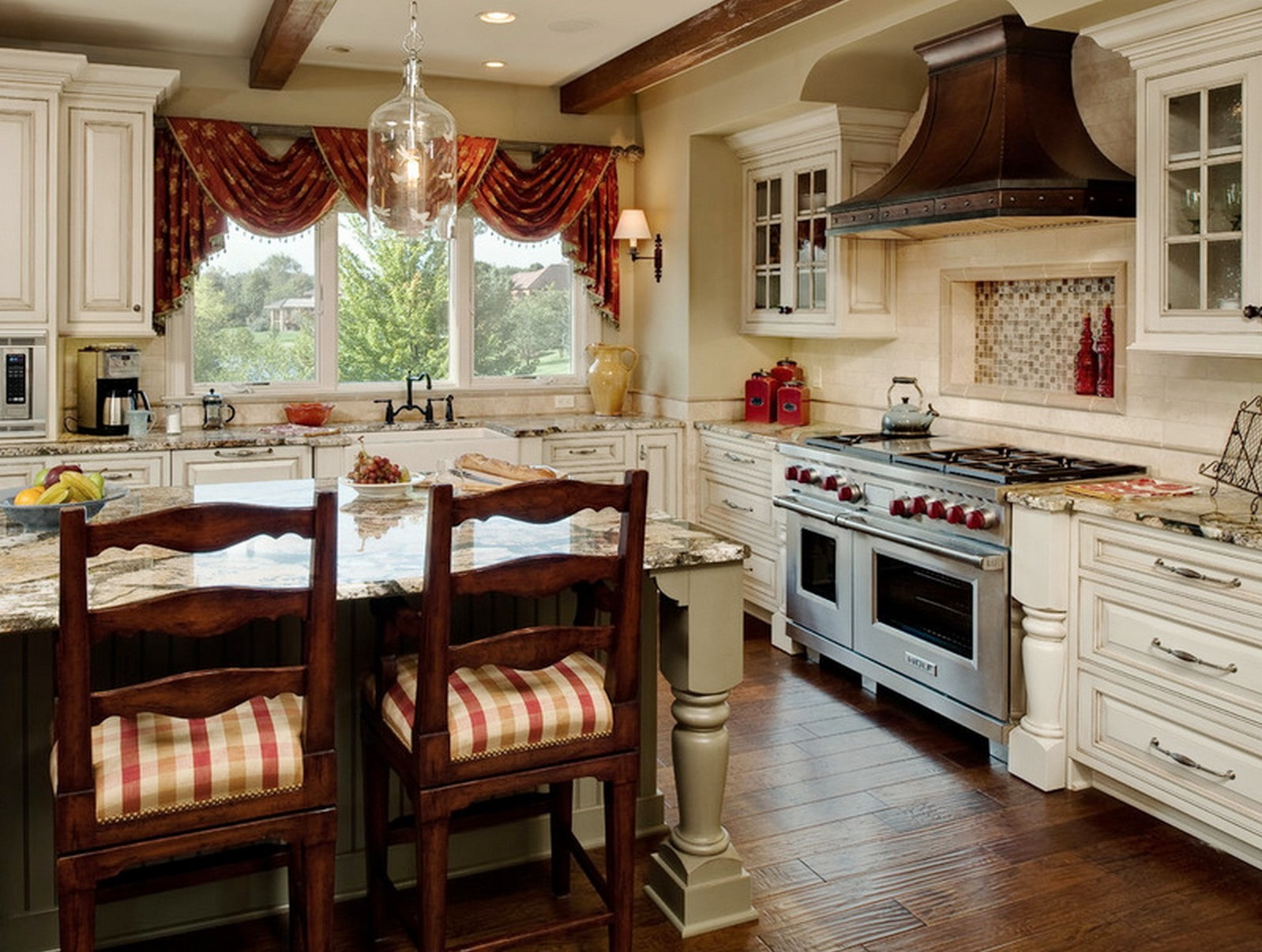
Then draw a sketch of the future product. You can copy one of the photos provided, or add your own idea to it. Or you can create a sketch of the lambrequin yourself, and there will be nothing like it in any photo.
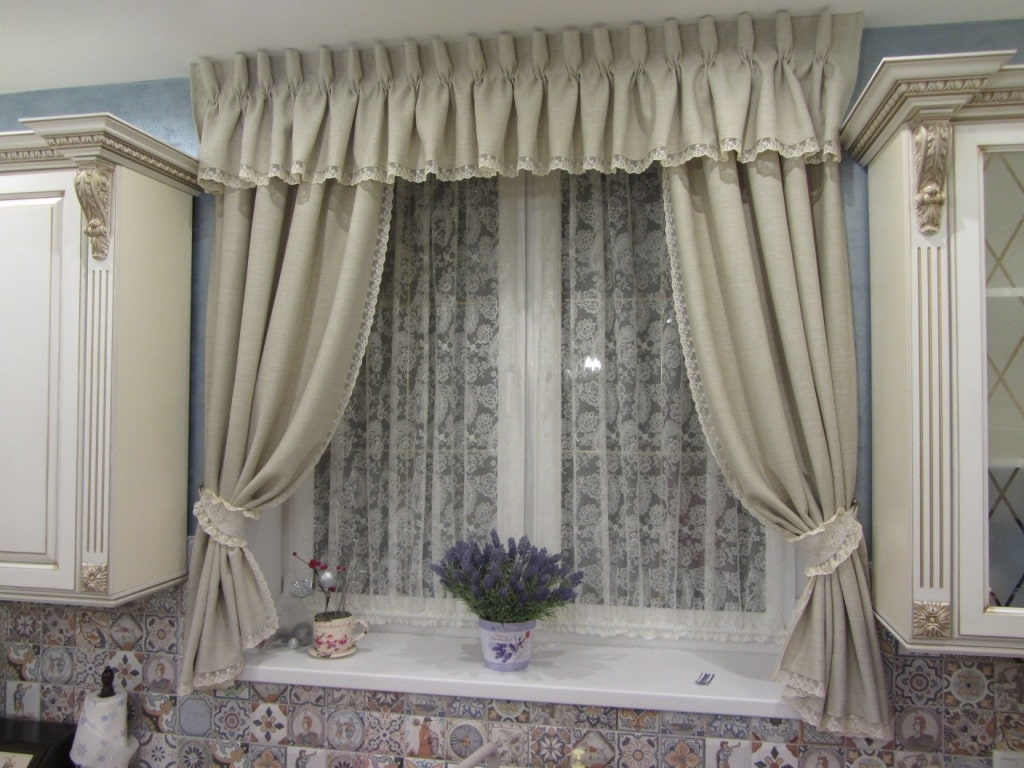
When choosing a base for your sketch, consider the following factors:
- window width and length;
- amount of free space around;
- the distance of the window from the stove, sink, cutting and dining table;
- presence of children and animals in the house;
- style of the room;
- color scheme of the interior.
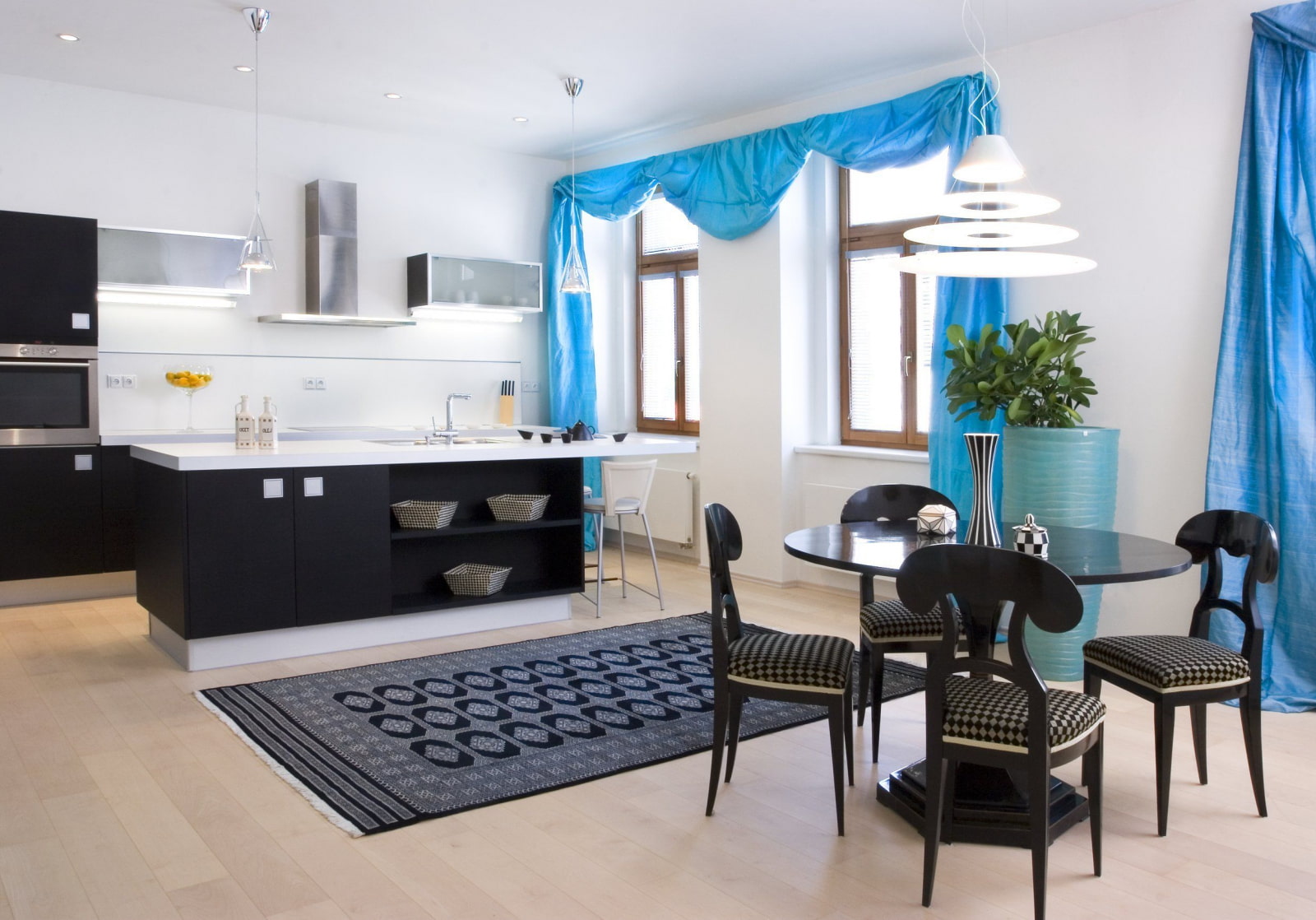
Now you can create your own stencil, which you can then use to sew the product.
What material can it be made from?
We have a sketch, then we need to choose the fabric for sewing. Here, much depends on the overall design of the kitchen, personal preferences and all the above factors. Usually, this element for the kitchen is sewn from light fabrics. Especially, a lambrequin for a small window should not be made from heavy fabrics and create a bulky design. And in the kitchen, windows are often small.
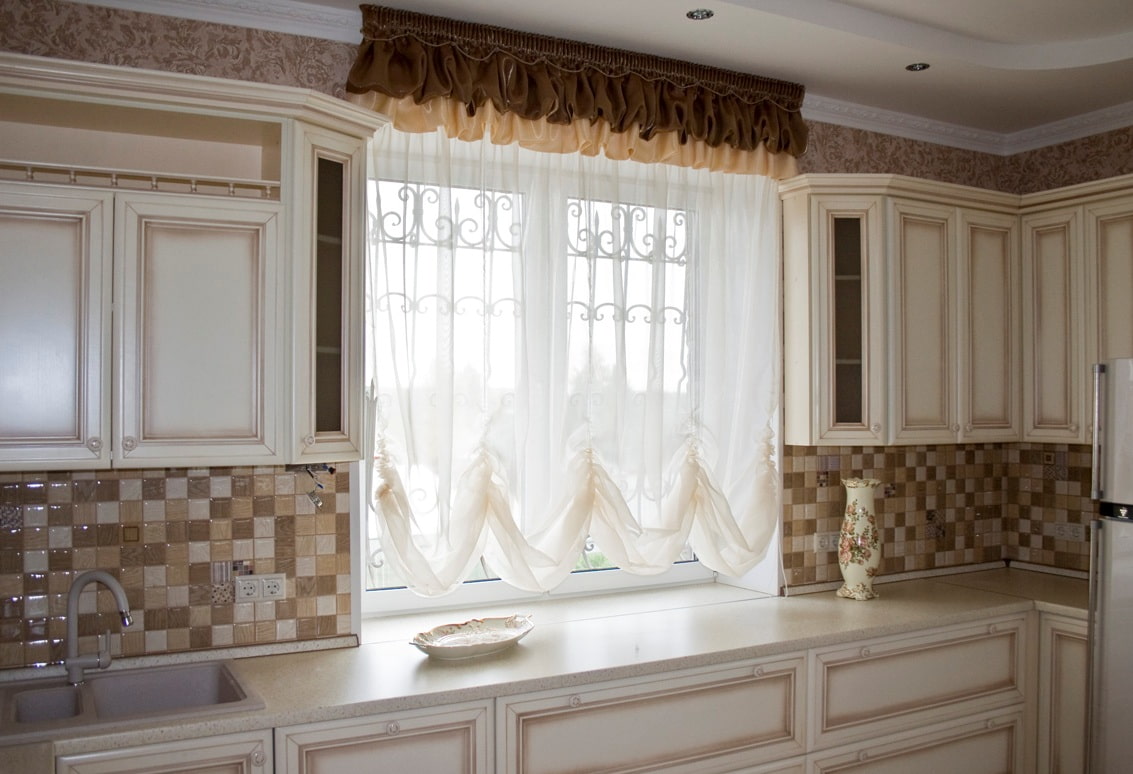
So, the best options in this case will be the following materials.
- Chiffon. This is a light, translucent fabric. It easily creates waves, it is easy to work with and it is convenient to assemble. The material is bright, has a wide range of colors, which is especially advantageous for the kitchen.
- Organza. This material is often used to make curtains. It has a greater degree of transparency than the previous version, has a pleasant shine. When assembled, it forms hard, stable waves.
- Tulle. A lightweight fabric used for making tulle curtains. It is easy to sew, but does not hold its shape or folds well.
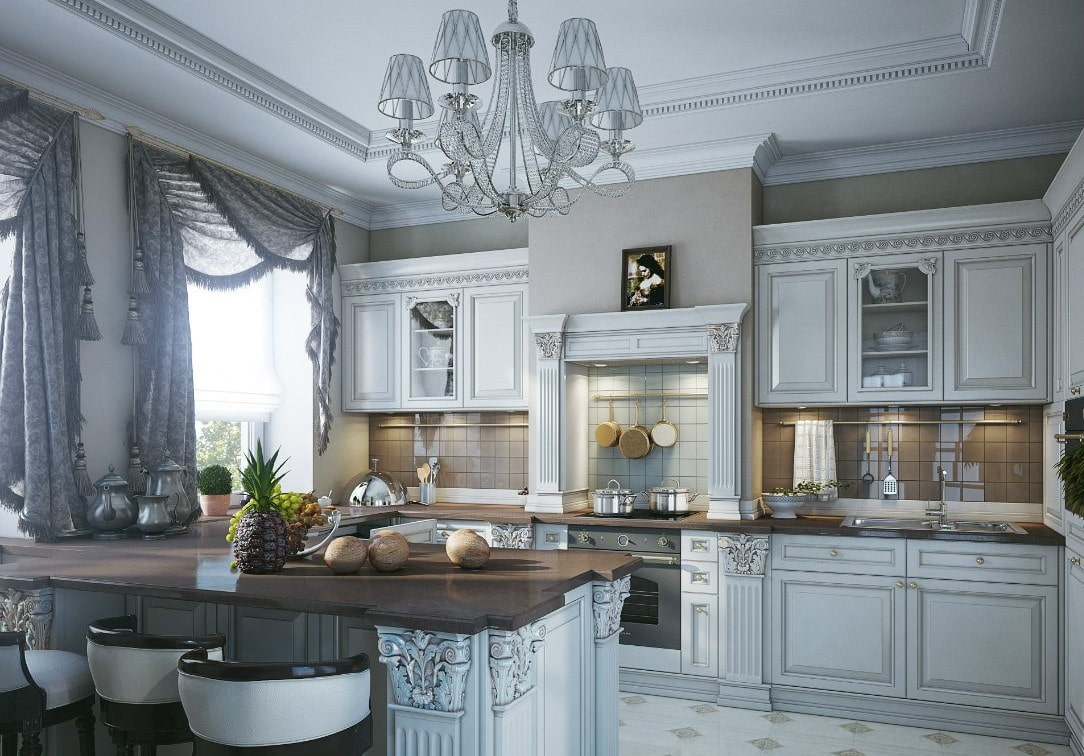
How to make it correctly
It is not difficult to make a lambrequin for the kitchen. It is enough to simply follow the proposed instructions. For convenience, we will break the work into stages.
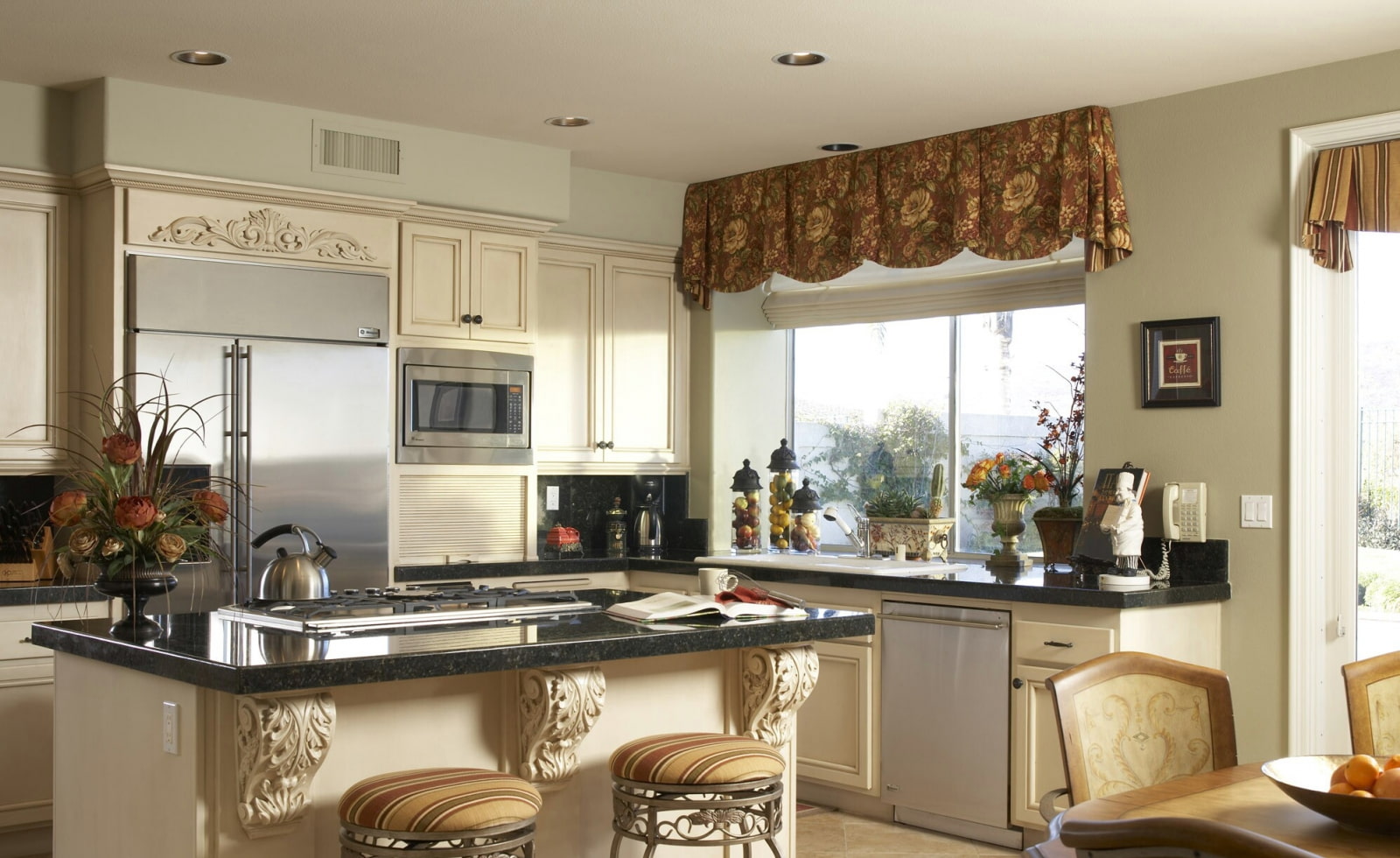
Taking measurements
Measure the width of the window and the width of the baguette. Decide on the length of the product.
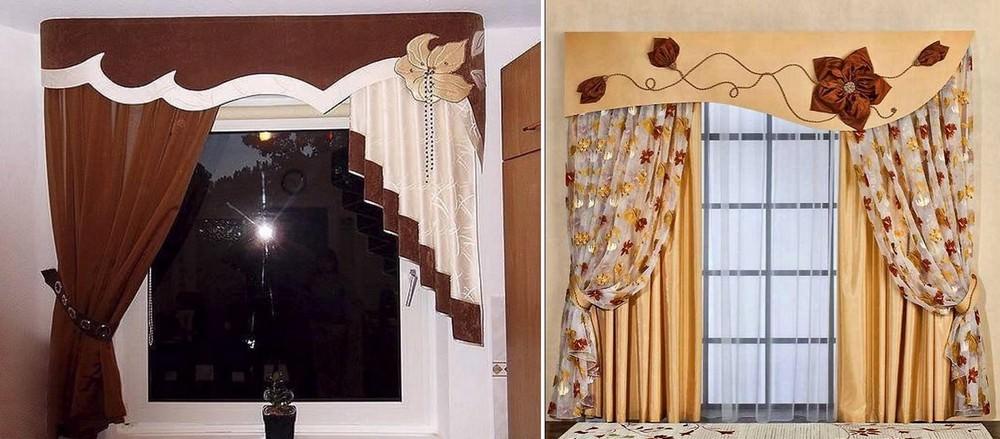
Choose the fabric, iron it, prepare the necessary tools (threads, scissors, French pins, sewing machine).
The "Pattern" stage
Make a pattern on the fabric in accordance with the measurements obtained and the prepared sketch. Cut the fabric taking into account allowances for folds.
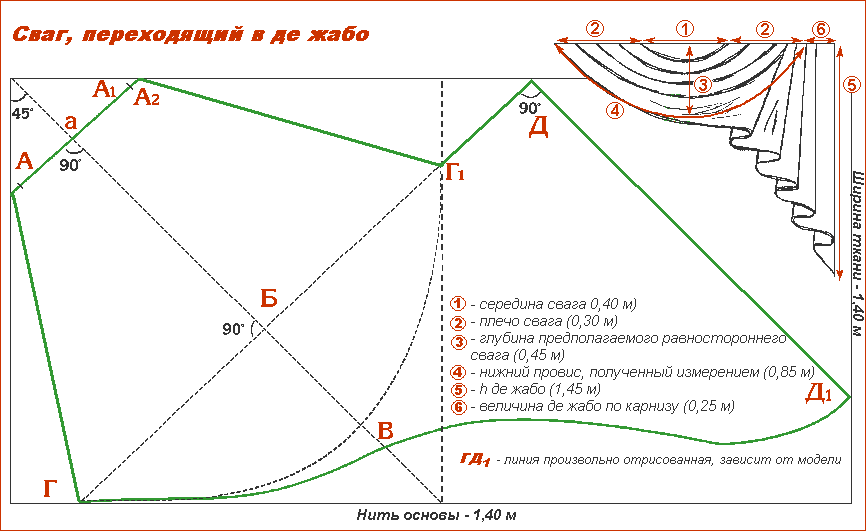
Overcasting
After cutting, the fabric edges must be processed with an overlock, otherwise they will fray.
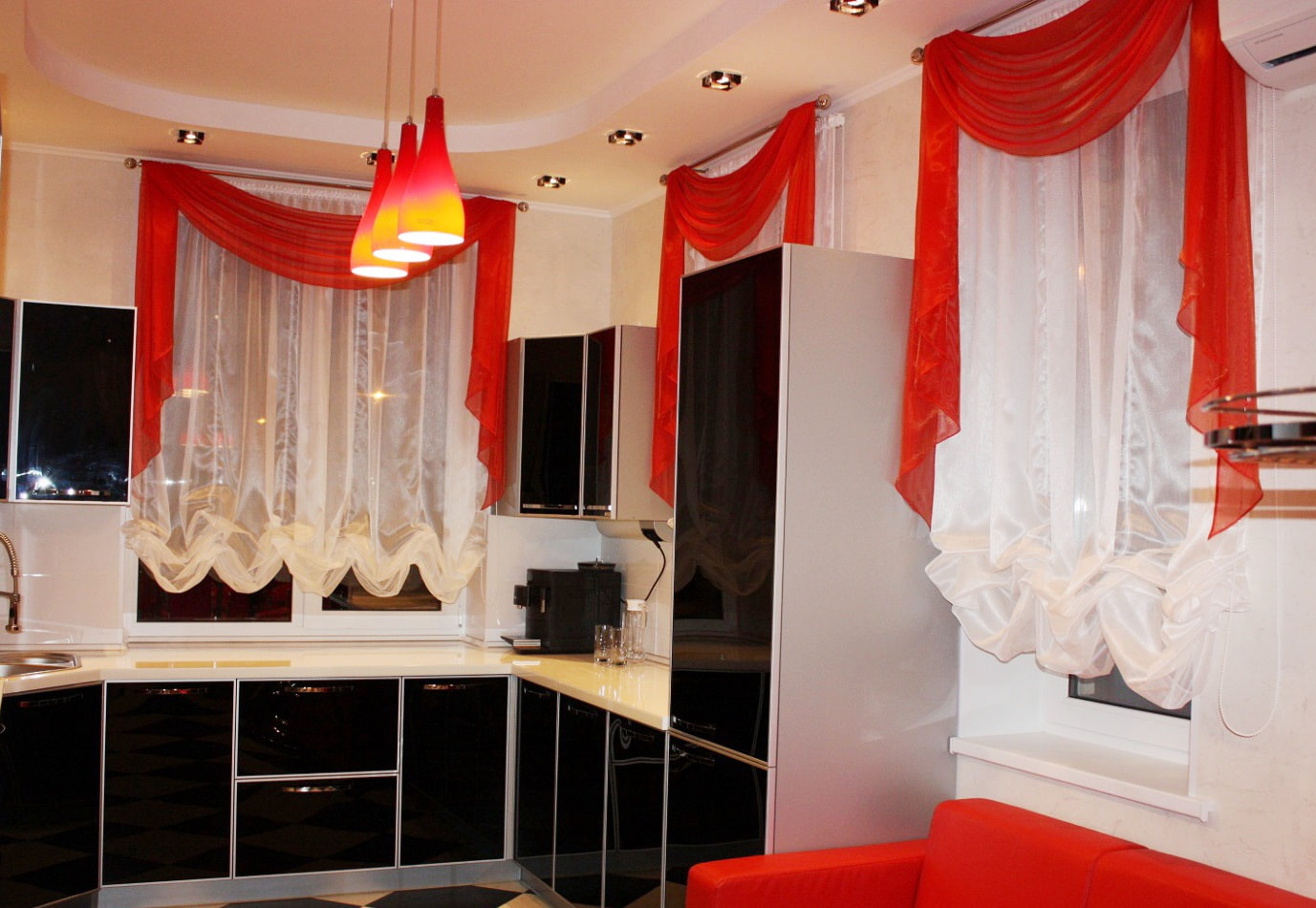
Sewing
Now you need to gather the lambrequin on the curtain tape, forming folds.
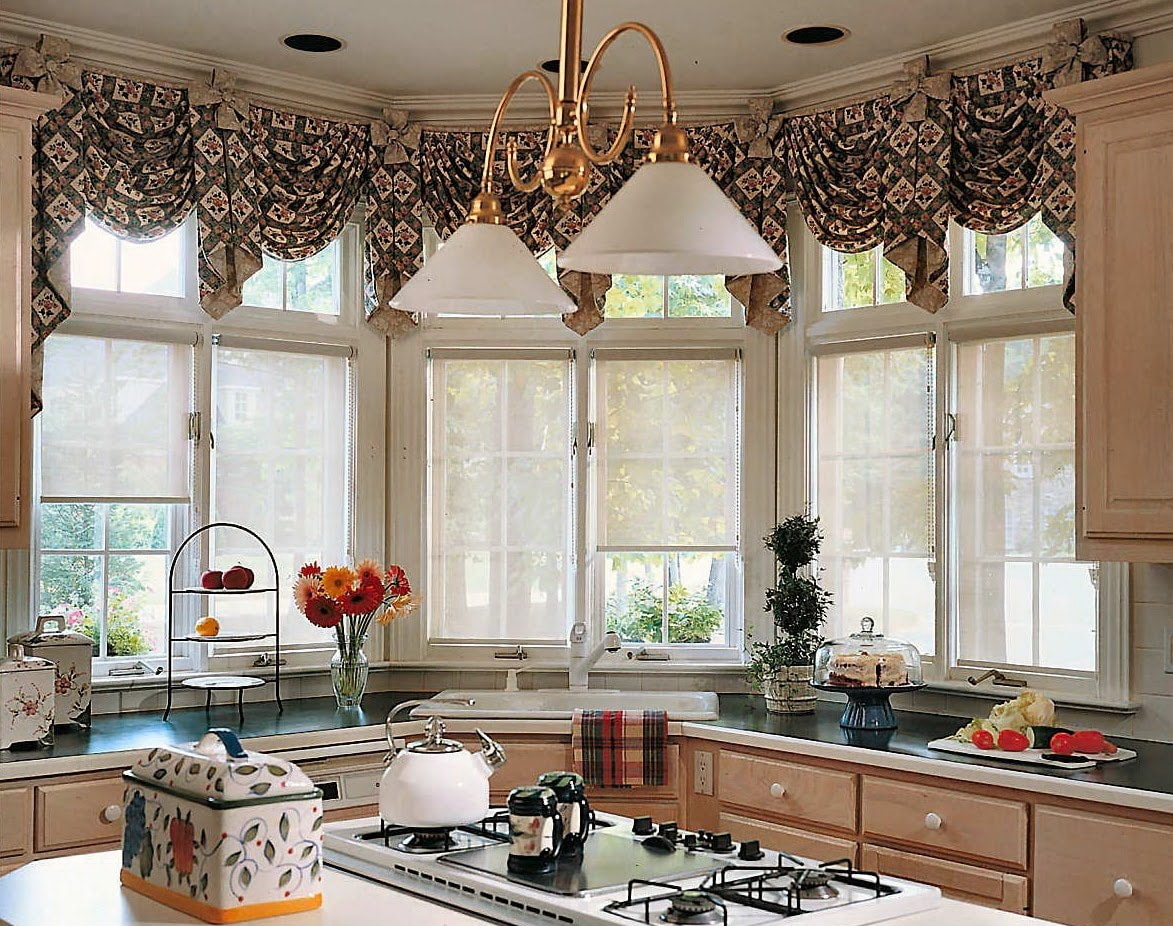
The final stage is considered to be decoration. Hang the lambrequin so that it forms a beautiful segment and harmonizes well with the curtains.
The main problems when sewing lambrequins
The biggest problem is the inability to correctly calculate the required amount of fabric.
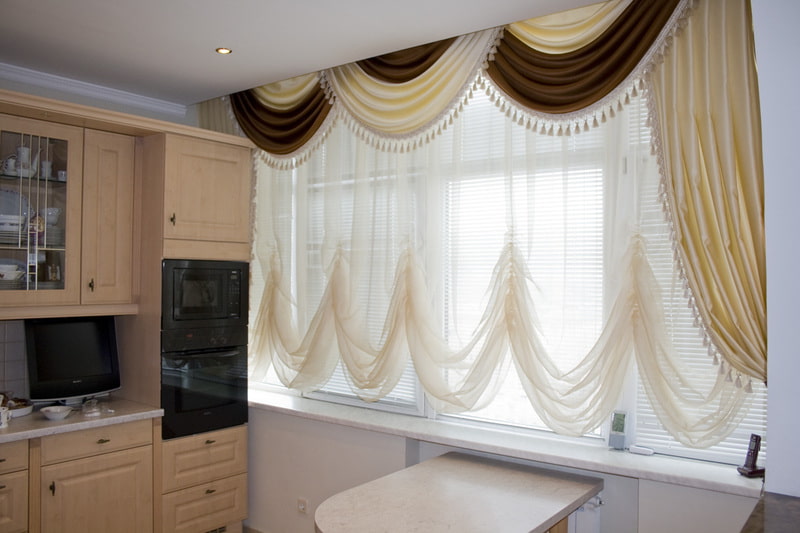
Remember! The size of the fabric determines the density and size of the folds on the lambrequin.
Please note that when gathering, the fabric is pulled together, forming folds. At the same time, it becomes shorter.
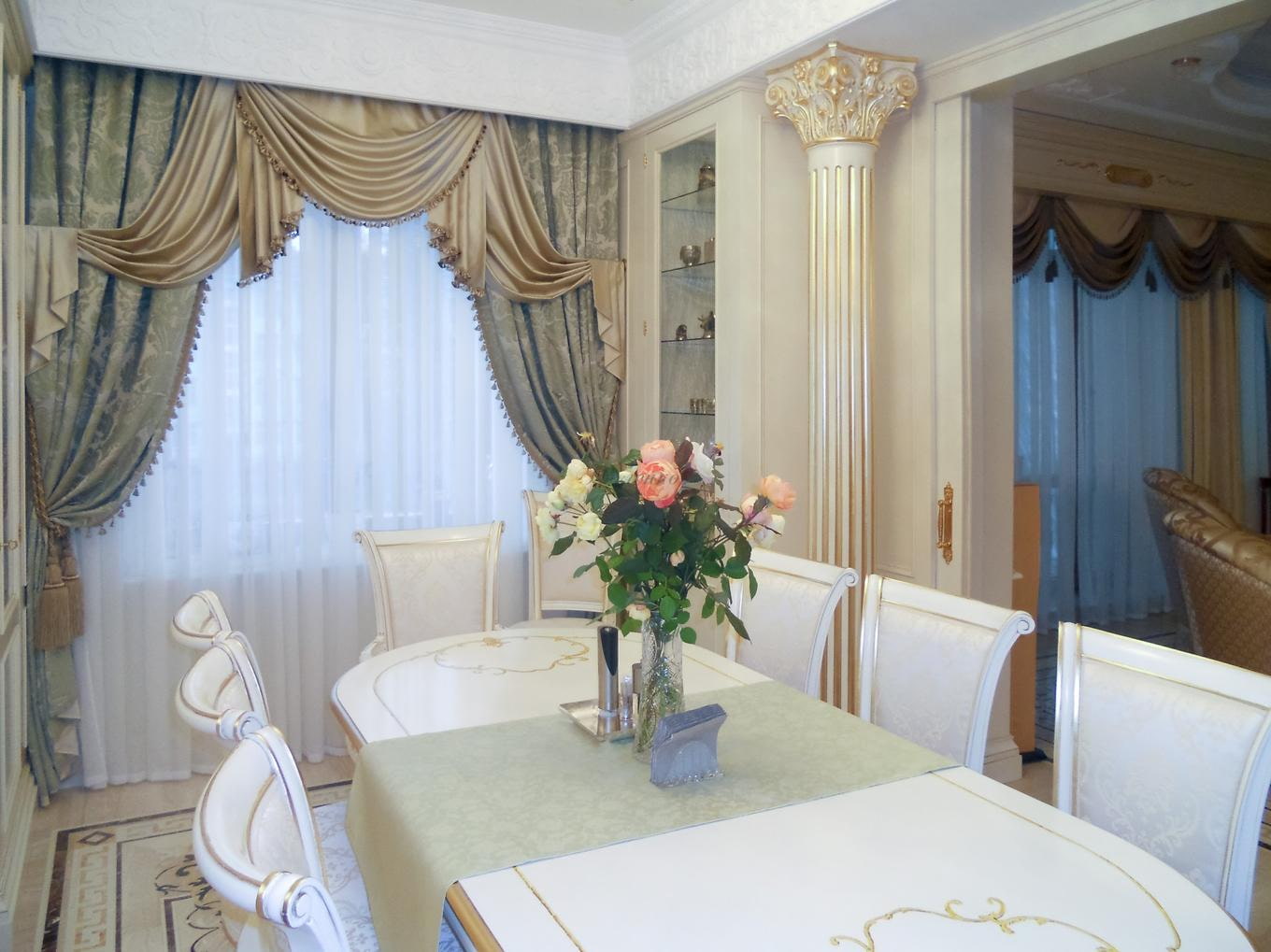
Combination of lambrequins with tulle in the kitchen
This element can be combined with a curtain or tulle. In the first option, the curtains are located along the edges of the window, and the lambrequins, complementing them, outline the window from above. In the second case, the tulle completely covers the window, and the lambrequin complements it.
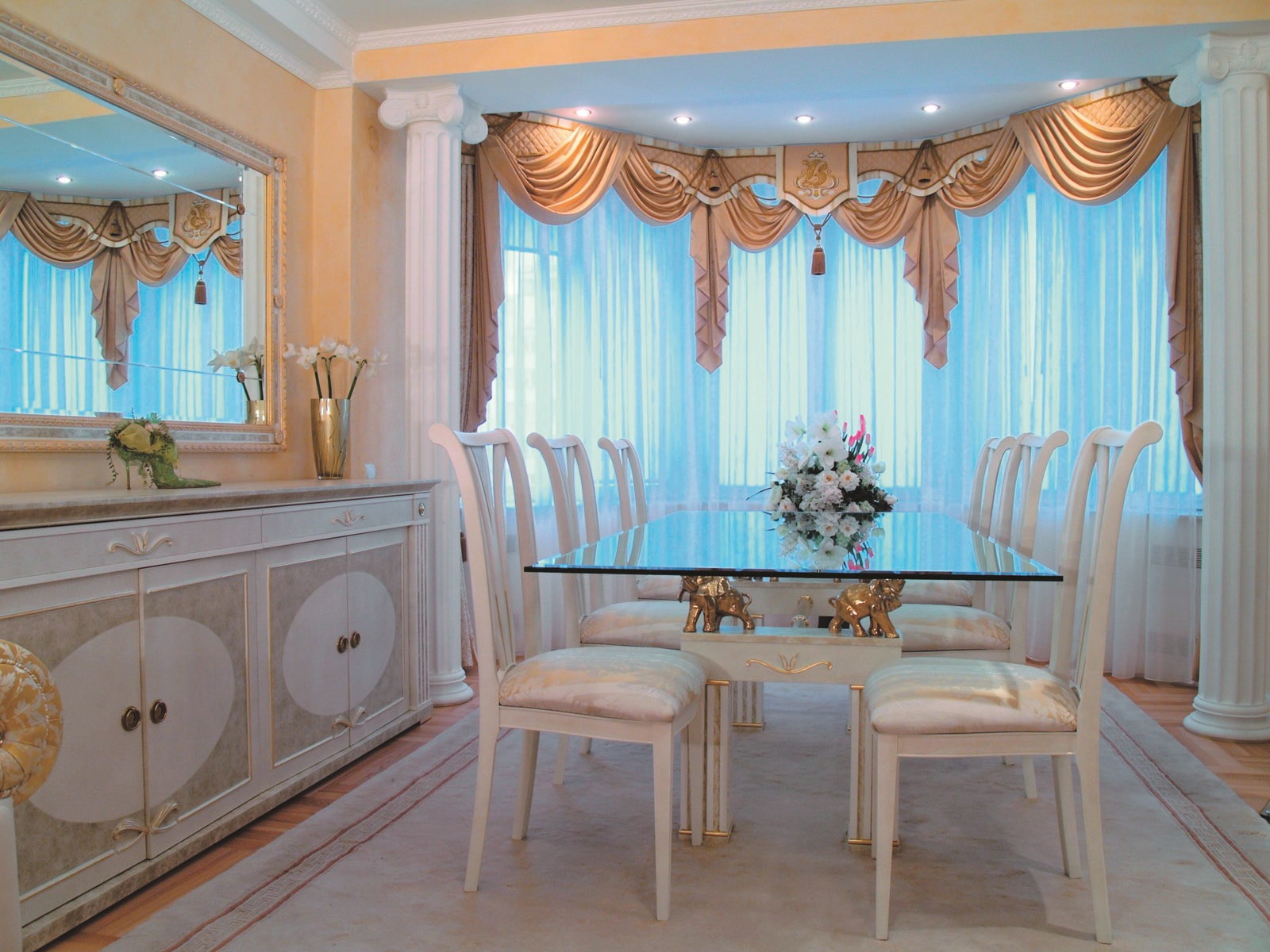
Important! The lambrequin and tulle must be attached to different strips of the baguette, since the first element does not move.
By placing the decorative element and tulle on the same strip, you will not be able to open the curtains.
It is better to choose a tulle color that is slightly different from the lambrequin by one or several tones. This way, the tulle will stand out and not merge with the decoration.
Design options
The design of this element depends primarily on the overall design of the room. If you have a kitchen in an old classic style, and the room is quite large, then you can choose a bulky design with heavy fabrics.
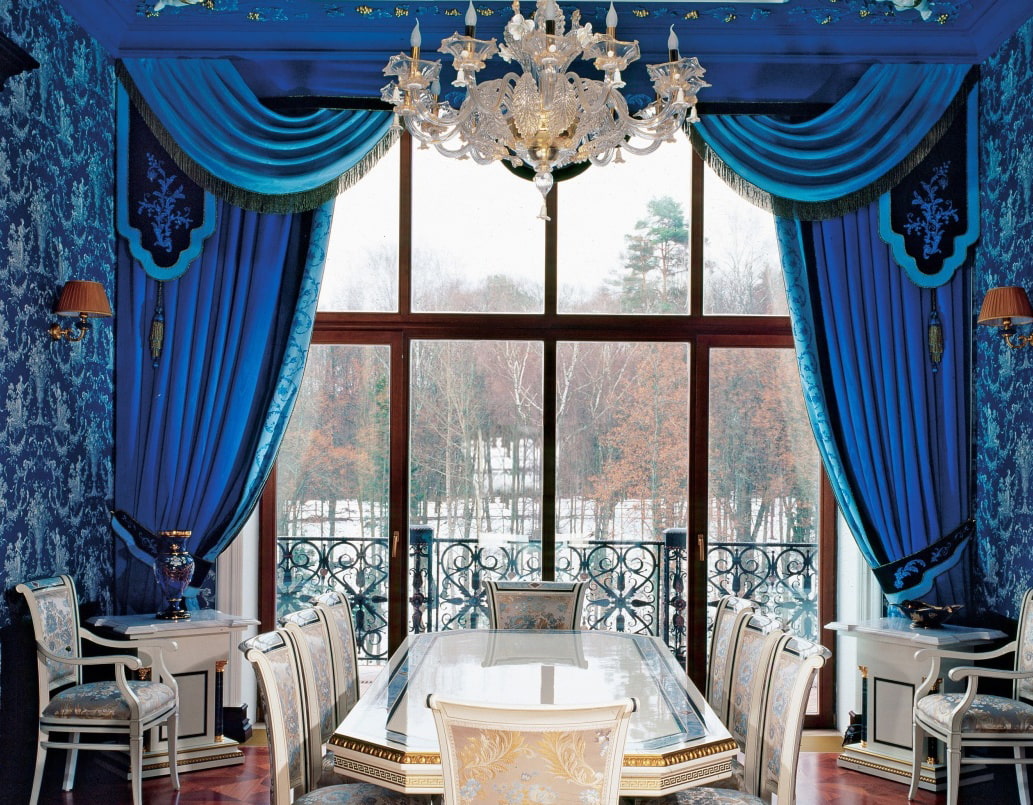
If the kitchen is modern in style, tending towards minimalism, give preference to light and delicate fabrics, light colors. This is especially good if the kitchen is small. This solution will allow a large amount of light to enter the room, and the room will become visually larger. The lambrequin itself in this case will add coziness to the room.
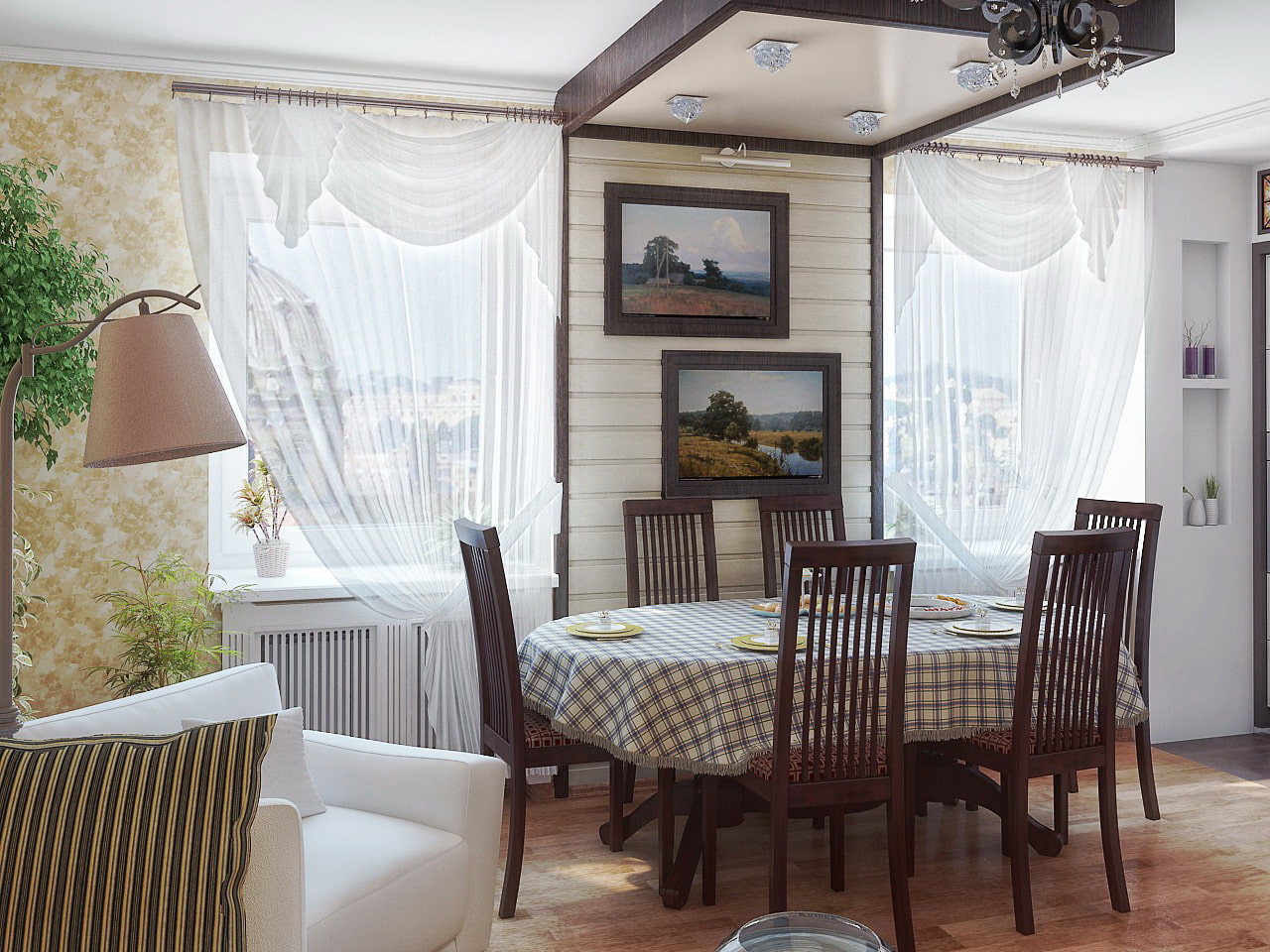
Don't be afraid to experiment, but remember that it's better not to weigh down the windows in the kitchen with a bulky design and dark tones. Choose a lighter and brighter design. Bright window decoration is also acceptable. In this case, use this bright color in another element of the kitchen.



